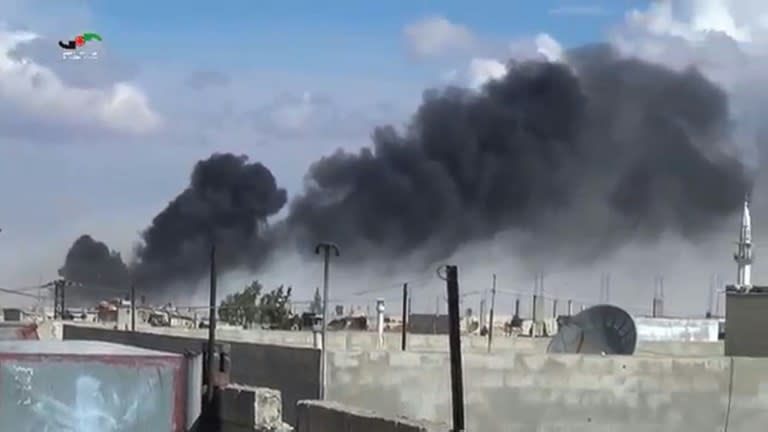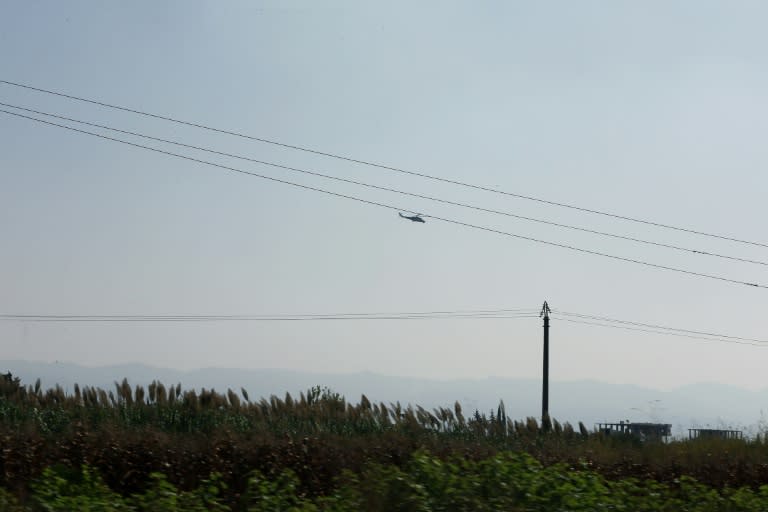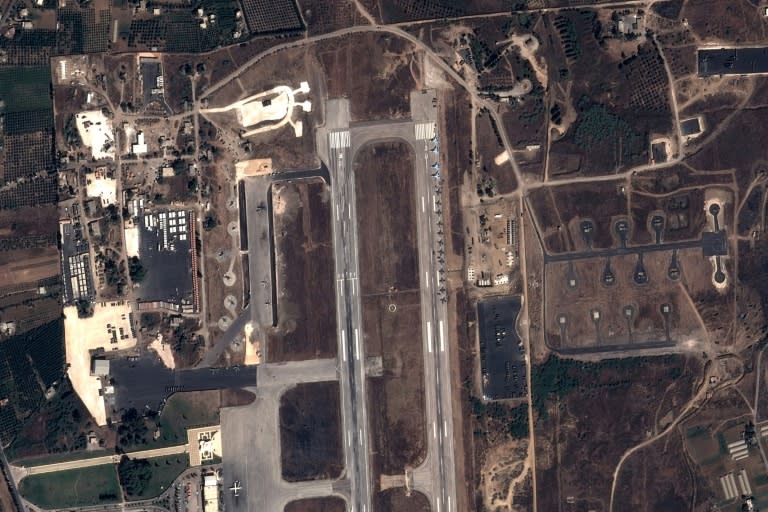Russia strikes add to chaotic mix of players and interests in Syria
The start of Russian air strikes in Syria has added yet another dimension to a war that already featured multiple actors pulling in different directions and serving their own interests, say experts. "We've seen incredibly complicated, multi-faceted conflicts in the past," said Shashank Joshi, senior researcher at the Royal United Services Institute (RUSI) in London, giving the Bosnian war of the 1990s as an example. "But this time the stakes are bigger. "If Iran loses Syria, it loses by far its biggest ally in the Middle East. If Russia loses Syria, it's a big geopolitical blow at a time when it's facing isolation," he told AFP. While Russia claims it is only interested in targeting the Islamic State (IS) group, its first air strikes on Wednesday and Thursday hit a range of rebels, suggesting the real priority is propping up its long-time ally, President Bashar al-Assad, against all his enemies. Russia is just one in a crowded field of players intervening in Syria, each claiming to target "terrorism" while pursuing their own agendas. Turkey has launched attacks against IS but most of it directed against the Kurds. Saudi Arabia and Qatar have treated the conflict as a proxy war against their regional rival Iran. "And then you have the US, which is anti-Assad, but it's increasingly clear is not willing to take on the same degree of risk," said Joshi. - 'Will only reinforce IS' - Multiple, overlapping insurgent groups on the ground, backed by a range of powerful patrons, make it almost impossible for the external powers to avoid treading on each other's toes. "The Russian strikes inevitably end up being provocative, because the different rebel groups are so mixed together," said Columb Strack, senior Middle East analyst for IHS Country Risk. "With US-backed rebels working alongside others, it's hard to strike one without hitting the other," he said. Different interests also lead to different approaches to the war. "Russia is focused on the northwest, protecting its Tartus naval base and the area around (Syrian government stronghold) Latakia, while Iran is extremely focused on protecting Syria as a conduit for Hezbollah (its Lebanon-based proxy militia)," said Joshi. The broader fear is that Russia will end up bolstering the strength of IS -- the exact opposite of its stated aim. "This is a direct intervention by the Russian army on the side of the dictatorship in Damascus, which will only reinforce IS and increase jihadist recruitment," said Jean-Pierre Filiu, author of "From Deep State to Islamic State". - 'Really smart or really dumb' - The jury is out on whether Russia has the resources to save Assad's regime, says Aron Lund, editor of Syria in Crisis, a blog published by the Carnegie Endowment for International Peace. "But it could help Assad on certain critical fronts, and it reassures supporters who have been abandoning him due to military losses and the economic downturn," he said. That could put any resolution to the conflict even further out of reach, re-balancing the strength of government and rebel forces and shutting down any hope of a more forceful intervention by the West. The presence of Russian planes in Syrian airspace "has taken the option of imposing a no-fly zone off the table, because the risk of tangling with Russia is now exceptionally high," said RUSI's Joshi. He points out that this is not new: fear of killing Russian military advisors working alongside Assad forces has constrained the West's options for at least a couple of years. Analysts overwhelmingly agree that Russia's chief long-term goal is to win a place at the table when it comes to negotiations on Syria's future -- a chance for Moscow to demonstrate its geopolitical importance at home, and make itself an indispensable partner to Europe, the US and China. In the process, however, it risks being drawn into a brutal war with no end in sight. "At this stage, it's difficult to tell if the Russians are being really smart or really dumb -- whether they are targeting specific areas for strategic reasons, trying to embarrass the US and provoke a reaction, or just blasting randomly away," said Lund.






